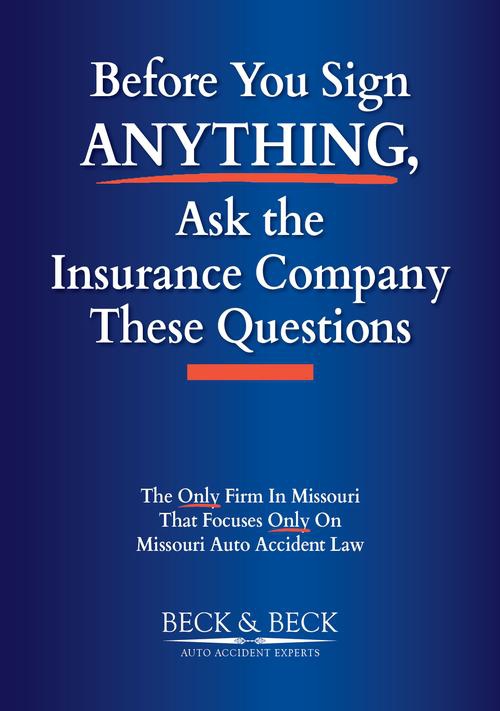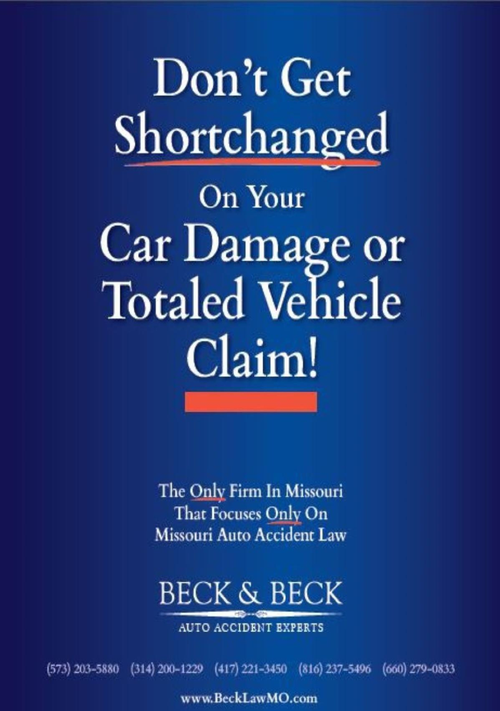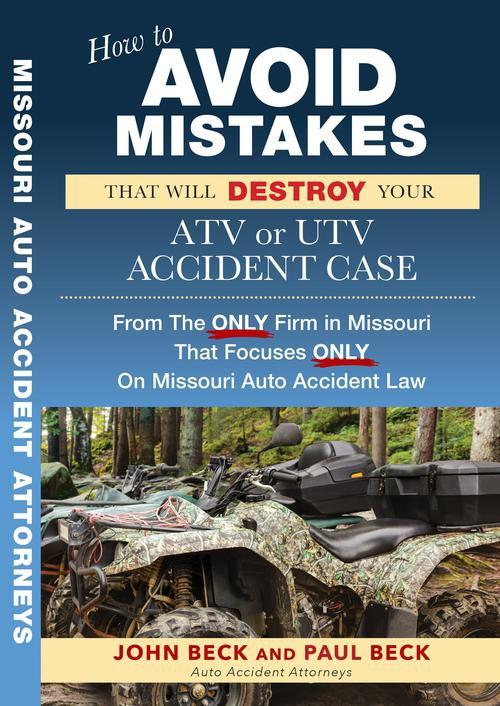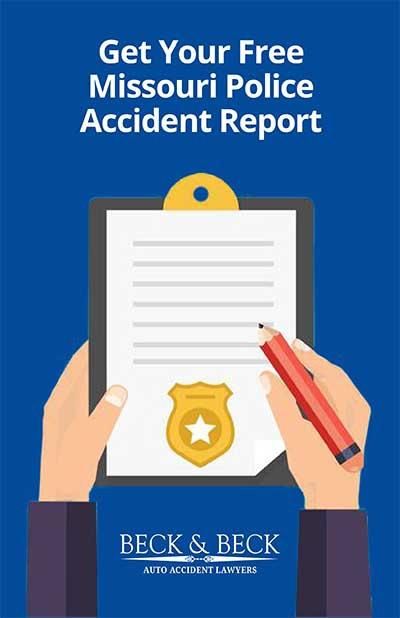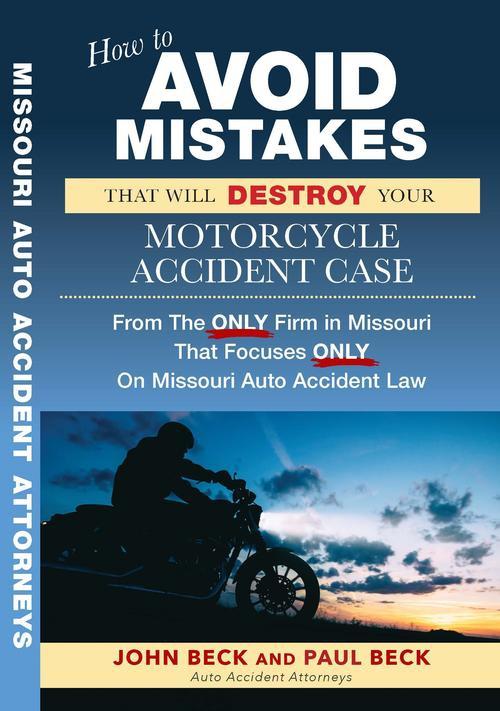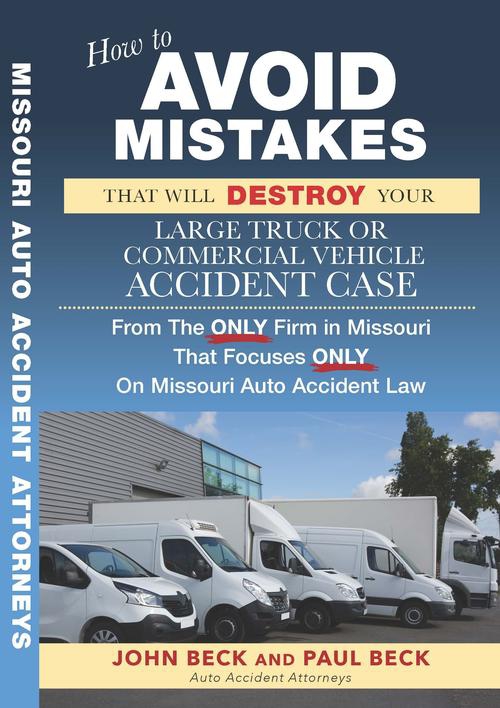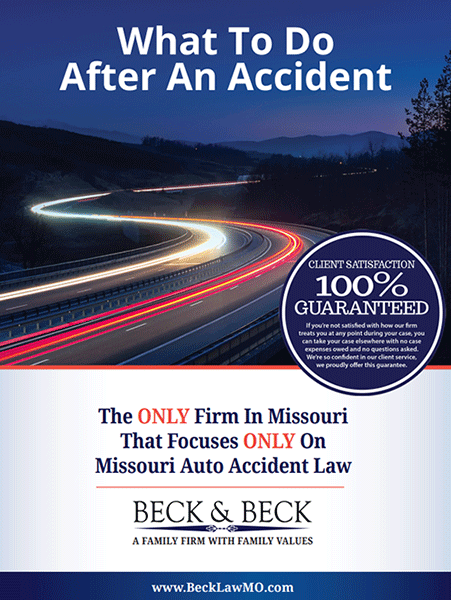When speaking with an insurance adjuster after a car accident in Missouri, stick to the basic facts, don’t speculate as to who was at fault, and be very cautious about discussing any injuries you sustained. The best course of action is to discuss the damage to your vehicle only. If they ask about your injuries, tell them you’re considering hiring a lawyer and will discuss injuries later.
Here’s a closer look at what you should (and shouldn’t) say and why it matters.
What to Say to the Insurance Adjuster After a Car Accident in Missouri
Knowing what to say to the insurance adjuster after an accident that wasn’t your fault can preserve your chances of successfully recovering monetary compensation. Keep these tips in mind to reduce your risk of accidentally sabotaging your case.
Don’t Admit Fault (or Even Imply That You Could Be at Fault)
As a rule, you should never apologize or admit fault at the scene of a car accident. The same rule applies when talking to an insurance adjuster.
When dealing with adjusters, it’s best to avoid discussing the particulars of the accident. Even if you weren’t at fault, what you say could still undermine your case.
Here’s an example: Imagine that the insurance adjuster asks you what led to the accident. You say, “I was driving down the highway, and there was a lot of traffic. I’m not sure how it even happened, but the SUV in the next lane crashed into me.”
Most people would think your statement indicated that you didn’t see the accident coming. However, an insurance adjuster might say that because you said, “I’m not sure how it even happened,” it means that actions like distracted driving were a contributing factor.
Stick to the Basic Facts
Insurance adjusters may seem like they’re trying to engage you in a casual conversation about the accident. What they’re really doing is trying to lull you into a false sense of security. They know that if you let your guard down, you’re more likely to say something that may damage your case.
When the adjuster asks for details about your accident, you should only give them the following information:
- The date and time of the accident
- Where the accident happened
- The parties involved
Adjusters will often try to push for more information, especially when it comes to the nature and severity of your injuries. However, you should never discuss your injuries in detail. Some (even potentially serious ones) may not be diagnosable right away.
Avoid Speculating
If you do describe the accident to the adjuster, don’t try to theorize why the other driver may have hit you.
For example, if you were struck by a vehicle while driving through an intersection, you shouldn’t say, “The other driver must have been texting or not paying attention.” Instead, say, “I had a green light and started through the intersection, and then the car hit me.”
If You Aren’t Ready to Talk, Say So
Having a clear idea of what to say to the insurance adjuster after a car accident in Missouri is important, but you should also know that you don’t have to talk to the adjuster simply because they called you.
Speaking with an insurance adjuster can be stressful, and many accident victims want to take the time to gather their thoughts before having an important conversation about what occurred. If you’re feeling unprepared or wish to talk to a lawyer first, don’t be afraid to tell the adjuster you want to reschedule.
Never talk to an adjuster immediately after an accident. When your adrenaline is running high, it’s easy to make mistakes, and adjusters will try to take advantage of that fact.
Don’t Agree to Sign a Medical Release
When evaluating your claim, the insurance companies will need to review your medical records. However, they need your permission to do so. The insurance adjuster might ask if you’re willing to sign a release so the insurer can look at your records.
This request might sound reasonable enough, but the release the adjuster is asking you to sign isn’t only for medical records related to the accident. The standard “medical release” most insurance companies use is a blanket release that allows them to access your entire medical history.
This kind of access can be extremely damaging to your case. Claims adjusters will comb through your records to find anything that could be construed as a pre-existing condition.
For example, imagine that you were rear-ended by another vehicle and suffered a serious neck injury. Your insurer later sees that you had neck surgery two years ago for a minor injury. They might try to argue that your previous injury contributed to your current condition and that you should receive less compensation as a result.
Instead of signing a release when the adjuster asks, talk to a lawyer first. Your attorney can ensure that you sign a release that only allows adjusters to access relevant medical records.
Ask for the Adjuster’s Information
In the event of an insurance dispute, it helps to have as much information as possible. Any time you speak with an adjuster, make sure to write down the following details:
- Their name
- Their phone number
- Their business address
- The name of the insurer they work for
- The date and time of the call
It’s not a bad idea to keep a running log of all communications you have with adjusters. Even jotting down a few brief notes about what was said can be helpful if you need to file a dispute later on.
Don’t Agree to a Settlement or Sign Anything
Insurance adjusters often pressure injured people to accept their initial settlement offers. Even if you think a settlement sounds generous, you should always tell the adjuster you need to talk to your lawyer before accepting.
Remember, if the insurance company is trying to get you to accept a settlement now, it’s because they know your case is worth far more.
When dealing with insurance adjusters, you should never sign anything without consulting our award-winning Missouri car accident attorneys first. Some adjusters may misrepresent documents or try to trick you into signing something that harms your claim.
Don’t Agree to Make a Recorded Statement
It’s not uncommon for insurance adjusters to ask victims to make a recorded statement after an accident. Know that you aren’t required to do so — and that you shouldn’t. Going on record will make it even easier for adjusters to distort what you say, take your words out of context, and ultimately undermine your claim.
If You Have Evidence, Mention It
In some cases, it can be prudent to let the adjuster know that you have evidence or documentation of the accident. For example, if you have quality dashcam footage, it may be helpful to tell the adjuster you have a recording of the accident.
If you bring up any evidence in your possession, don’t go into the specifics of the accident or why the other driver was at fault. If the adjuster is downplaying your claim or trying to pressure you into settling, they may take your claim more seriously if they know you’ve been gathering evidence.
Hire a Qualified Attorney
Working with a lawyer after a car accident has innumerable benefits, and one of these is that they can handle all necessary communications with the insurance company. It’s hard to feel completely at ease while you’re trying to heal, but knowing you don’t have to talk to the insurance company can give you some much-needed peace of mind.
Why This Conversation Matters
Following a car accident in Missouri, it’s only natural to want to discuss what happened. You may be in pain, uncertain about the future, and wanting to process the event.
Talking about your accident with family and close friends can be a lifeline. However, talking about the accident with an insurance adjuster is the exact opposite. In theory, these professionals are supposed to evaluate claims objectively. In reality, that’s almost never what they do.
Adjusters work for insurance companies, which have one goal: to pay as little as possible. Adjusters are trained to help their employers achieve that goal, so when they talk to you about your accident, they aren’t just trying to understand what happened — they’re looking for any little detail that might devalue your claim.
When discussing your accident with you, insurance adjusters will generally be aiming to do the following:
- Decrease your eligible compensation as much as possible
- Convince you to settle quickly
You might wonder why adjusters are so eager to close cases. They know that the longer it takes your claim to resolve, the more time you have to talk to an attorney and understand its true potential value.
That’s why so many insurance companies offer quick, artificially low settlements to accident victims. They recognize that you’re likely stressed about medical bills and other costs, and that you probably don’t know how much your case is actually worth.
Many injury victims are relieved that they’re being offered anything at all, so they quickly accept a lowball offer. Sadly, once they agree to a settlement, they can’t back out.
When talking to an adjuster, you should be extremely careful about what you say and always err on the side of caution. It can help to be aware of some of the key tactics adjusters use to devalue claims.
Twisting Your Words
Even a benign statement can be twisted to make it seem like your injuries aren’t as severe as they really are. For example, after your accident, the insurance adjuster may call you and start the conversation by asking, “How are you doing?”
If you say something like “I’m okay” or “I’m feeling a little better,” the adjuster might claim that your statements are proof that you aren’t as hurt as you claim to be.
Probing for Information
Because insurance adjusters are so skilled at twisting statements, they’ll often try to get accident victims to talk about their mishaps in detail. Remember that the more you say, the more they’ll have to use against you.
Looking for Inconsistencies
Statements filled with inconsistencies can make you appear dishonest. But traumatized accident victims may have trouble remembering their crashes clearly. They may also be dealing with considerable pain and stress, which can cloud their perceptions and dull their memories.
When talking with you about your accident, the insurance adjuster will likely be waiting for you to make a mistake. Even small, seemingly inconsequential inconsistencies could be used as “evidence” to discredit your claim.
Assisting Car Accident Injury Victims in Missouri Since 1990
Insurance companies invest tremendous time, money, and energy into making sure they don’t pay accident victims any more than they have to. You shouldn’t have to deal with an insurer after an accident alone.
By working with our experienced Missouri car accident lawyers, you’ll be far more likely to recover the compensation you deserve.
You don’t just need an attorney if you’ve suffered life-altering injuries — you need someone with experience, grit, and dedication. Beck & Beck Missouri Car Accident Lawyers has been fiercely advocating for injured Missouri residents since 1990.
As the only Missouri law firm that exclusively handles car accident cases, we’re uniquely equipped to help you navigate the aftermath of your accident. Contact us today to schedule your free consultation and get the support you need.
Cities in Missouri where we’ve handled auto accident claims include St. Louis, Jefferson City, Independence, Kansas City, O’Fallon, Doniphan, Cape Girardeau, Kirksville, Springfield, Pine Lawn, and more.
Related Articles
Do I have to report a car accident to the police in Missouri?
What to do immediately following a car accident in Missouri
I’m from out-of-state and I was in a car accident in Missouri

